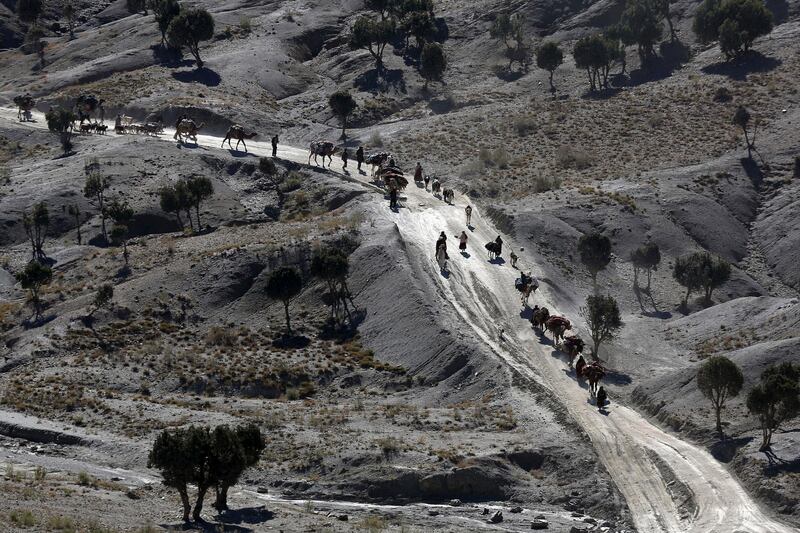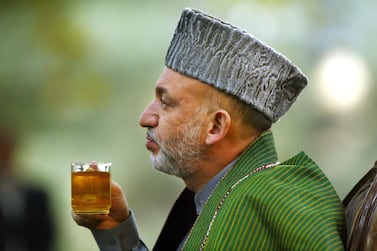Khyber Swati’s real story is straightforward: he was born and raised in Pakistan but unofficially sought refuge in neighbouring Afghanistan 10 years ago after joining the Tehrik-i-Taliban Pakistan (TTP), the Taliban’s branch in the country. His home in his native Swat valley, he says, was raided by Pakistan’s spy agency, the Inter-Services Intelligence. He has since brought his wife and four children to Afghanistan, explaining that, as a TTP member who also holds links with Al Qaeda, he will never be able to return to his home country.
But Swati, 45, who is using a pseudonym to protect his identity, also has an alternative narrative: originally from Afghanistan’s Nangarhar province, he grew up a refugee in Pakistan, finally returning home 10 years ago. His parents and siblings continue to live in rural Nangarhar and he is happy to be reunited with them. He chuckled when asked if people believe his lie.
“Even the Afghan government does,” he said, slamming his freshly printed blue passport on the floor in front of him. “Islamic Republic of Afghanistan,” it reads.
Most of the Pakistanis who come over to Afghanistan are Pashtuns, an ethnic group that is on both sides of the Durand Line, the de-facto border between the two countries, which can make it difficult for Afghanistan's authorities to check whether a person was raised in Pakistan or Afghanistan.
Just how many Pakistanis linked to extremist organisations have pretended to be Afghan and managed to become naturalised Afghan citizens is hard to say, and the government doesn’t like to talk about it. For those who cannot go back to Pakistan – assuming they would be caught and imprisoned – Afghanistan has become an escape where they can start all over again and where their children can live relatively quiet lives despite the war.
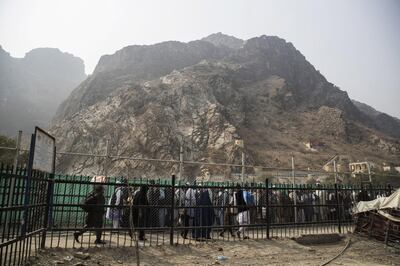
"The Ministry of Interior took action to prevent this issue," spokesperson Tariq Arian told The National, adding that a new "digital and modern system" knows the passport applicants. He declined to comment further.
But even with a new system in place, it is tough – even impossible – to check whether someone has been born on the eastern or western side of the Durand Line.
Another high-ranking government official, who spoke under the condition of anonymity, said there could be several ways for Pakistanis to obtain Afghan identification: “they might pay bribes, find a local family and village to ‘adopt’ them or opt for a fake tazkira – the Afghan identification document – in which case they wouldn’t be able to eventually get a passport, but could use the ID card at road checkpoints or when applying for jobs.”
While a tazkira can be issued at the civil registration office of any province – with data recorded in an online system – passports need to be applied for at the passport office; the biggest one located in the capital Kabul.
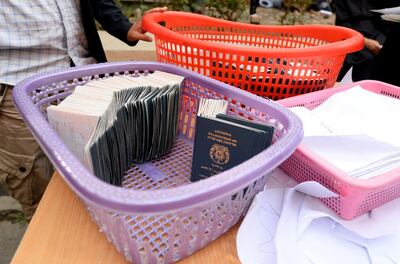
In Swati's case, who is an ethnic Pashtun of the Yousafzai tribe – the same one Nobel Prize laureate Malala Yousafzai is also part of – he obtained his official ID with the help of close friends of the same tribe who lived in Nangarhar and vouched to be his parents and grandparents, saying their son had returned from Pakistan, where he was born an Afghan refugee. The deal was sealed when he secured the required signatures from Afghan government officials.
“I travelled to Kabul to get my passport about two years ago. I already had my tazkira so I wasn’t nervous. What does it mean to be Afghan or Pakistani anyway?, he asked. “Nangarhar is my home now; these are my people.”
The question of identity is deep-seated and complex along the Durand Line - the 1893 British-established de facto border between the two countries that Afghanistan still doesn’t recognise as an official international border and which has divided tribes and families.
People on both sides – mainly ethnic Pashtun and Baloch – also continue to visit relatives either side of the line using both official and unofficial crossing points. While Pashtuns make up the majority of people in Afghanistan, they continue to be marginalised in Pakistan.
“The implementation of the Durand Line divided hundreds of thousands of people from their relatives and tribes on both sides of the border,” a report by the European Asylum Support Office stated.
“There has always been movement of persons and groups across the border between the two countries,” the report said.
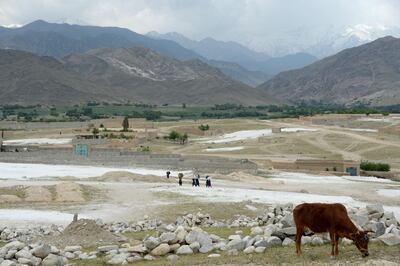
Ever since war erupted in Afghanistan in 1979, Afghans have flocked into Pakistan to seek refuge – an estimated four to five million people between 1978 and 2011, according to UNHCR. The US-led invasion and subsequent toppling of the Taliban regime in 2001 saw a massive influx of returnees – more than 1.5 million Afghan refugees returned from Pakistan in 2002 alone, according to the European Asylum Support Office.
Swati’s tale states that he was one of them.
The World Bank puts Afghanistan’s population at roughly 38 million, but the country’s last official census was done in 1979, followed by decades of war and displacement. Pakistan has started pushing those Afghans not officially registered as refugees back across the border – and into insecurity.
But for those Pakistani Pashtuns and Baloch linked to militant or terrorist networks andafraid of their own intelligence service, a new life in Afghanistan might just be the best option.
Ayub Durrani, a 22-year-old who grew up in Karachi, came to Afghanistan as a teenager to join the Islamic State. It will remain a one-way trip for the remainder of his life.
He claimed to have left the battlefield to study the Quran at a religious school in Afghanistan’s Kunar province, but explained that going back to Karachi isn’t an option, as he “hated” his country and was wanted there.
He doesn’t yet have a passport but obtained an official tazkira with the help of an “adopted family.” Growing up, he spoke Urdu and English at school in Pakistan, but Pashto at home with his family.
Andrew Watkins, the International Crisis Group’s Senior Afghanistan Analyst said that official identification and documentation in Afghanistan, though it has undergone a series of reforms and improvements, remains highly vulnerable to lower and higher levels of corruption.
"Unfortunately, the case of Pakistani citizens being able to obtain Afghan identification seems to be only one small (if fascinating) feature of an endemic problem: that for many Afghans, personal connections and informal practices are the only means to obtain official documents," he told The National
Durrani, who also chose an alternative name for the interview – but is part of the Durrani Pashtun tribe – recently got married and said he wanted to "build a life in his new home."
“Of course many Pakistani people here I know who came to Afghanistan to join the Taliban or the Islamic State are trying to do the same,” he explained. “As for me, I’m hoping for a quiet, private life. I miss my family in Karachi, but officially becoming an Afghan was the only way forward.”
